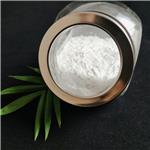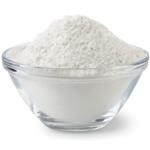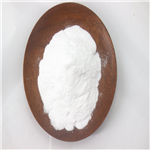Description
Dicalcium phosphate (CaHPO4; DCP), also known as calcium hydrogen phosphate, is a mineral and a member of the calcium phosphate family. Calcium phosphates are salts derived from phosphoric acid. They look like a white powder and have no smell. It is an insoluble inorganic diluent. The anhydrous (triclinic crystal) and dihydrate (monoclinic structure) forms of DCP are used in pharmaceutical development. The dihydrate form of Dicalcium Phosphate presents good flow properties and low hygroscopicity. However, based on the temperature (40–50°C) and humidity (32%–75% relative humidity: % RH), the dihydrate form tends to lose water of hydration, which can cause chemical instability of APIs in dosage forms. Because of the absence of water in its crystal structure, the anhydrous form of DCP exhibits higher porosity, leading to better compressibility and faster disintegration. The dihydrate form transforms (partially or wholly) into the anhydrous form because of the high temperature during the wet granulation process.
Uses
Dicalcium Phosphate finds diverse applications across various industries. In the food industry, it serves as a nutritional supplement, stabilizer, and thickening agent, enhancing the nutritional value of products like breakfast cereals and processed foods. In pharmaceuticals, it acts as a filler in tablets, promotes dental health in toothpaste, and serves as a source of calcium and phosphorus in dietary supplements. Additionally, it is utilized as a nutrient supplement in animal feed, promoting growth and health in livestock. In the fertilizer industry, it improves soil quality and aids plant growth by providing essential nutrients. Beyond these main uses, it serves as a polishing agent in glass, ceramics, and metals production, and as a flame retardant in plastics and synthetic materials.
Side effects
Many people using this medication do not have serious side effects. Tell your doctor right away if you have any serious side effects, including: nausea/vomiting, loss of appetite, unusual weight loss, mental/mood changes, bone/muscle pain, headache, increased thirst/urination, weakness, unusual tiredness.



